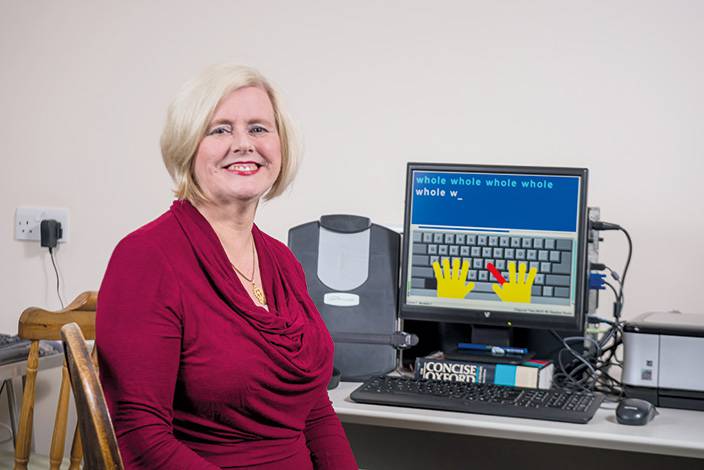In last month’s Times, we reported on fears that handwriting is becoming a dying art. But specialist teacher Patricia Hardingham believes typing is just as important, especially to children with learning difficulties.
The 65-year-old, who has worked as a primary teacher and as a specialist for children with learning difficulties, agrees that learning to write is ‘vital’, but argues that keyboard use is not only as important, it can be more so.
She said: “For children with dyslexia or a similar condition, concentrating just on handwriting means they can’t bring their ideas forward properly.
“I do agree that writing should be taught properly, from when a child’s fingers can hold a pencil, and in proper lessons at primary school, but if it will delay the creativity of a child’s mind because of a handicap, proper typing lessons can give a great advantage.”
Mrs Hardingham, who herself has dyslexia and dyspraxia, a form of developmental co-ordination disorder, was a primary school teacher before she had children.
But after her fourth child was born, and she was looking for part-time work, Mrs Harding-ham was employed by Kent County Council as a specialist reading teacher.
She became qualified to teach youngsters with learning difficulties, worked for schools across the Tunbridge Wells area and now teaches touch-typing at home.
Mrs Harrington said: “There are dyslexics in every class, and they’re the ones who have the ideas but can’t get them down. Then their peers think they haven’t got anything to contribute – can you imagine how that makes those children feel?
“My job is to change that and it’s a wonderful one.
“I see smiling faces, not just from the children but from their parents too, they worry if they think their children aren’t the same as the others and wonder what their future will be.
“Touch-typing makes parents realise they believe in their children, which brings the children forward to being happy adults, because their parents believe in them.”
Last month, creative director Sarah Wright told the Times about Start-Bee, a new initiative aiming to improve children’s reading and handwriting.
Pathways
She said: “In the digital age there’s an impression we just need to learn to type. Yes we need to learn to type, but if we don’t learn to write first our ability to comprehend things can only go so far.
“You’re at your most creative when putting pen to paper. And forming a letter by hand creates neural pathways that allows children to read it better, and process it faster, than pressing letters on keyboard.”
But Mrs Hardingham said: “Yes, handwriting is essential and will help children learn to spell if they use a cursive style, but if children can’t write, muscle memory formed from using a keyboard will still help them learn to spell, especially with a programme like the one I use.
“It’s specifically for children with specific learning difficulties but I don’t just use that, I teach with sweets and prizes, and lots of play and laughter.
“It’s a way of communication – it’s been proved that using touch-typing, youngsters with learning difficulties bring forward so much more.
“There seems to be a fear in schools, of not using laptops immediately. Children should start on large keyboards and looking straight ahead so they know what they’re writing.
“Typing is a skill you’ll always use. It’ll help you get jobs, but it also allows those children to come forward.
“When you see a child with messy work in his book do something on a screen which can be printed off and put on the classroom wall, you’ve no idea how wonderful it is.”








